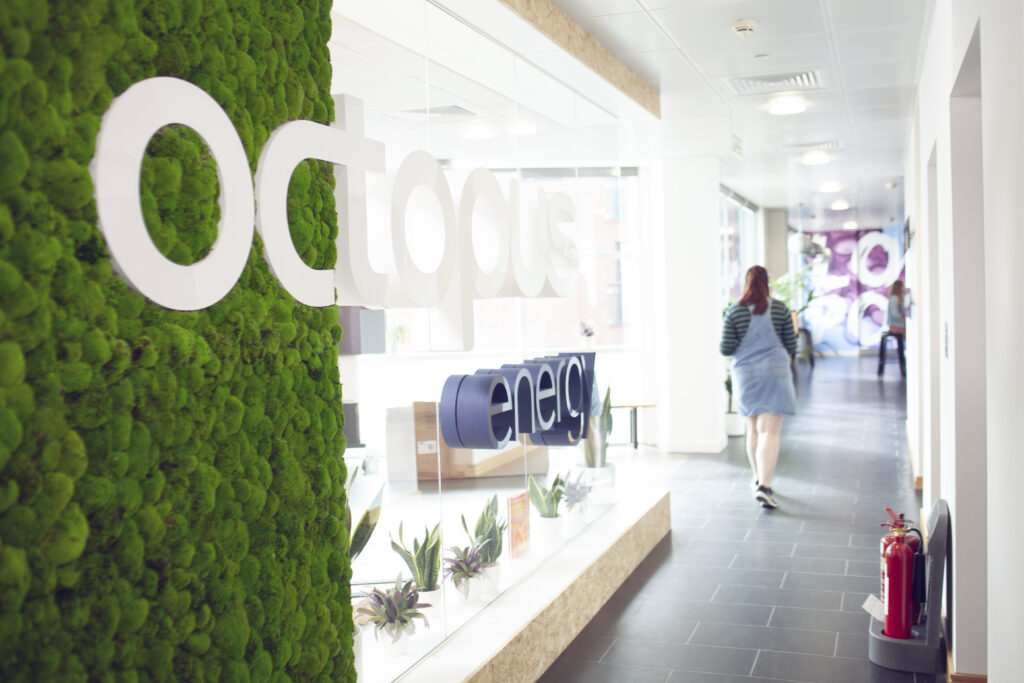Octopus Hydrogen and BayWa r.e. are to develop green hydrogen production facilities at renewable energy sites in the UK.
The two companies have signed a Memorandum of Understanding (MoU) that will see Octopus Hydrogen install electrolysers, compression and mobile hydrogen storage at selected solar and wind projects owned by BayWa r.e.
An initial pipeline of projects have been identified, which could see the companies produce up to 6,500kg/day of green hydrogen. This hydrogen – the first of which could be produced as early as next year – will then be distributed to Octopus Hydrogen’s customer sites, to support the decarbonisation of industries such as heavy transport, shipping and aviation.
New software developed by the hydrogen arm of the Octopus Group will be used to optimise electrolyser usage at the sites. This will ensure the site can also help balance the grid and drive efficiencies, managing renewable generation in such a way it can act as a catalyst for further renewable capacity, the company said.
The MoU builds on a number of projects announced by Octopus Hydrogen since the company was unveiled in April 2021, including a supply partnership with ZeroAvia’s R&D centre at Cotswold Airport and a strategic partnership with Innova Renewables and Novus to roll out green hydrogen production across the country.
“We want to develop and establish a decentralised model for green hydrogen production,” Will Rowe, founder and CEO of Octopus Hydrogen said. “Our partnership with BayWa r.e. plays an important role by providing excellent renewable sites and the opportunity to share expertise. Collaboration helps to unlock the potential of the green hydrogen market in the UK and beyond.”
Current± caught up with Rowe last year to discuss the company’s decentralised model, and the challenges of electrolyser costs.
Co-locating electrolysers with on-site renewables can help to reduce the cost of the energy needed for green hydrogen production, making arrangements like the partnership with BayWa r.e. particularly favourable. Additionally, on-site hydrogen generation helps to avoid the curtailment of renewable energy due to grid congestion.
The companies expect around 30-40% of the renewable energy generation to be used for green hydrogen, while the rest is fed into the grid.
BayWa r.e. is planning to ramp up its hydrogen activities in Europe, along with targeting more than 2GW of onshore wind and solar projects across the UK and Ireland. The company recently won an option agreement within the ScotWind Leasing round to develop more offshore wind.
Green hydrogen has a significant role to play in BayWa r.e. and Octopus Hydrogen’s collective journey, said Stefan Tait, head of energy storage and hydrogen UK at BayWa r.e.
“Our partnership with Octopus builds on the innovative work we are already doing across Europe in producing green hydrogen from renewable energy, and we look forward to jointly deploying these concepts to help meet the UK’s energy transition targets.”
The UK government released its hydrogen strategy in August 2021, outlining a target of 5GW of low carbon hydrogen production capacity by 2030. Since then activity in the sector has picked up pace, with a number of significant green hydrogen projects announced, such as a 500MWe green hydrogen project in Teeside being announced by bp, ScottishPower’s Whitelee green hydrogen project being awarded £9.4 million in funding and Macquarie GIG announcing a plan to develop green hydrogen on Orkney.






